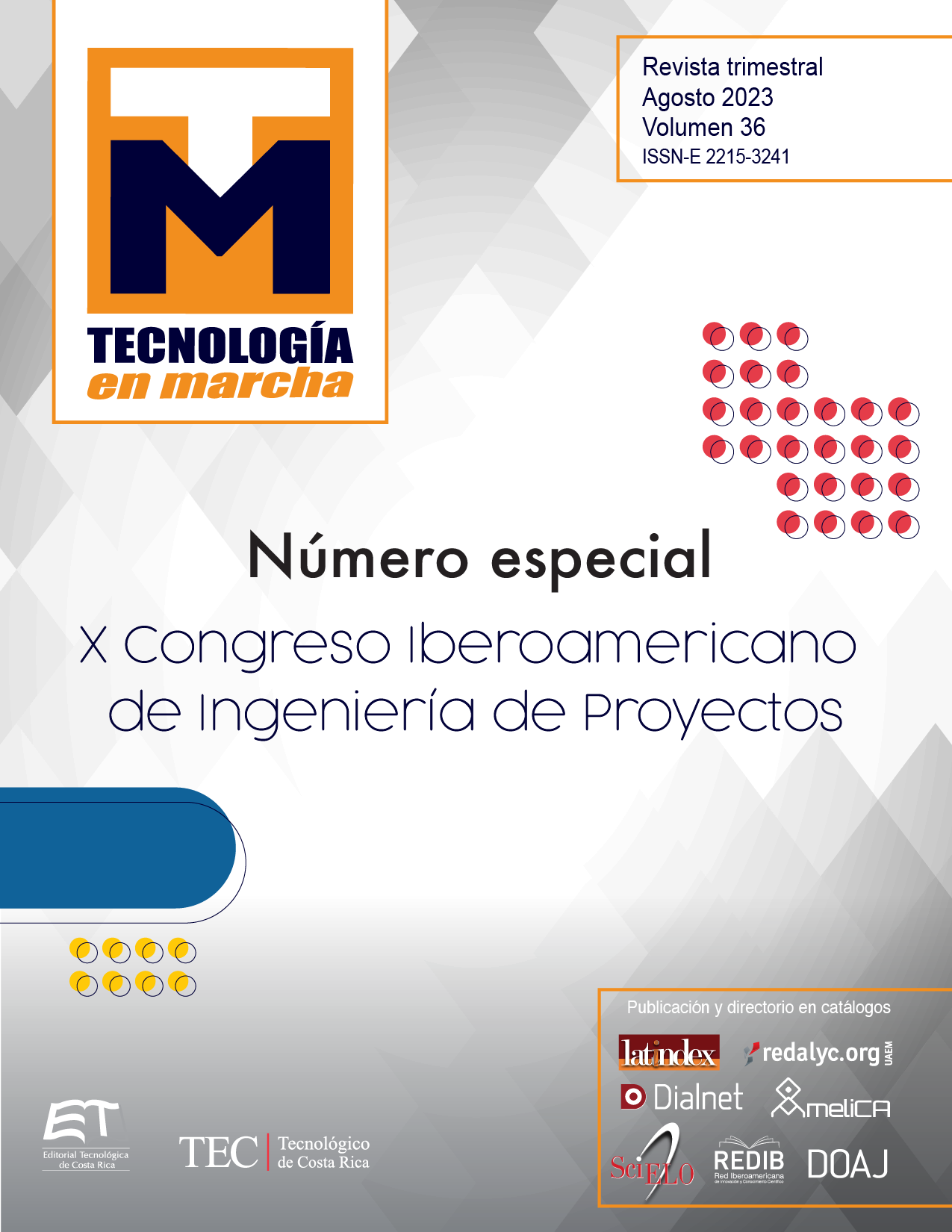Virtuality in the teaching of research in the master’s degree in Project Management at Tecnológico de Costa Rica
Main Article Content
Abstract
The COVID-19 caused educational programs under face-to-face modality to virtualize their teaching methods. The Master’s program in Project Management at the Tecnológico de Costa Rica did not escape from this reality, this work focuses on the subject Research Methodology Seminar, which aims to develop the proposal of the final graduation work. Thus, taking advantage of IT resources, it went from face-to-face to synchronous virtuality under the active learning method in the second bimester of the year 2020. The objective of this study is to demonstrate how the application of virtuality in the course has given positive results in learning methods, course evaluation and promotion. The methodology applied has a qualitative approach within an action-research design. The results of the implementation of virtuality are catalogued as positive with a 99% promotion rate in the course, 75% of approved proposals and a 70% promotion rate of the master’s degree. In order for the virtualization to obtain positive results, academic and evaluative activities were reformulated, the participation of more academic personnel of the master’s program was included, multimedia material was generated and information repositories were created. In conclusion, the application of virtualization has been positive for the program; it was implemented under an active learning scheme, which promotes self-regulation and complies with the acquisition of significant learning embodied in the course.
Article Details

This work is licensed under a Creative Commons Attribution-NonCommercial-NoDerivatives 4.0 International License.
Los autores conservan los derechos de autor y ceden a la revista el derecho de la primera publicación y pueda editarlo, reproducirlo, distribuirlo, exhibirlo y comunicarlo en el país y en el extranjero mediante medios impresos y electrónicos. Asimismo, asumen el compromiso sobre cualquier litigio o reclamación relacionada con derechos de propiedad intelectual, exonerando de responsabilidad a la Editorial Tecnológica de Costa Rica. Además, se establece que los autores pueden realizar otros acuerdos contractuales independientes y adicionales para la distribución no exclusiva de la versión del artículo publicado en esta revista (p. ej., incluirlo en un repositorio institucional o publicarlo en un libro) siempre que indiquen claramente que el trabajo se publicó por primera vez en esta revista.
References
C. Oviedo y B. Alfaro. “UCR aplica plan inédito en el país para integrar la virtualidad”. Semanario Universidad. 16 de setiembre 2020. https://semanariouniversidad.com/universitarias/ucr-aplica-plan-inedito-en-el-pais-paraintegrar-la-virtualidad/
L. Tirreni, G. Vilanova y J. Varas. “Desarrollo de competencias digitales en propuestas pedagógicas en ambientes mediados. Un caso en educación superior bajo modelo de aula extendida”. Informes científicos técnicos-UNPA, vol. 11, no. 3, pp. 61-87, 2019. http://doi.org/10.22305/ict-unpa.v11.n3.797
J. R. Santamaría-Sandoval. “Estrategia de implementación del modelo B-learning en el nivel de Bachillerato en la carrera de Ingeniería en Telecomunicaciones de la Universidad Estatal a Distancia, Costa Rica” (Tesis maestría). UNINI Puerto Rico – Universidad del Atlántico España. 2021. https://aleph23.uned.ac.cr/exlibris/aleph/a23_1/apache_media/D33EU2S5FX3MCM2RVVRGKD38U85CGU.pdf
J. R. Santamaría-Sandoval y E. Chanto-Sanchez. “Valoración del Modelo de Enseñanza a Distancia Virtual en la carrera de Ingeniería en Telecomunicaciones en tiempos de COVID-19”. Revista de Educación Superior, vol. 20, no. 31, pp. 27-45, 2021. https://revistavipi.uapa.edu.do/index.php/edusup/article/view/253
L. Canals Casals, B. Amante García, M. Macarulla, V. López-Grimau y A. Guinart. “Adaptabilidad de las asignaturas de gestión de proyectos a la virtualidad debido a la COVID-19” en el 25th International Congress on Project Management and Engineering, 2021.
L. M. Esnaola y H. D. Ramón. “Implementando evaluación por pares en la virtualidad”. Repositorio Digital UNNOBA, 2020. https://repositorio.unnoba.edu.ar/xmlui/handle/23601/169.
S. Freeman, S. L. Eddy, M. McDonough y M. P. Wenderoth. “Active learning increases student performance in science, engineering, and mathematics” en actas de National Academy of Sciences, vol. 111, no. 23, pp. 8410-8415, 2014. https://doi.org/10.1073/pnas.1319030111
L. García Aretio. “Blended learning y la convergencia entre la educación presencial y a distancia”. Revista Iberoamericana de Educación a Distancia, vol. 21, no. 1, pp. 09-22, 2018. doi: http://dx.doi.org/10.5944/ried.21.1.19683
R. Hernández-Sampieri y C. Mendoza-Torres. Metodología de la Investigación. Las rutas cuantitativa, cualitativa y mixta. México: McGraw-Hill, 2018.
C. Bernal. Metodología de la investigación para Administración, Economía, Humanidades y Ciencias Sociales. Cuarta edición, Colombia: Pearson, 2016.

